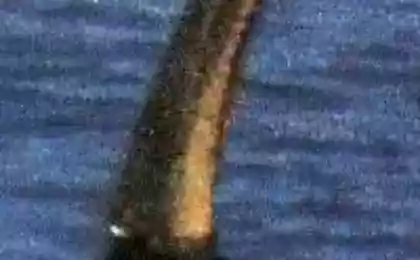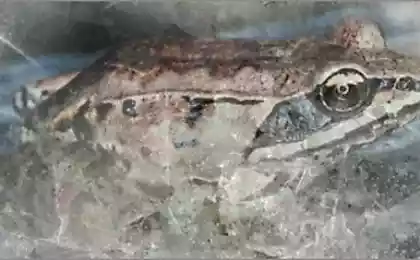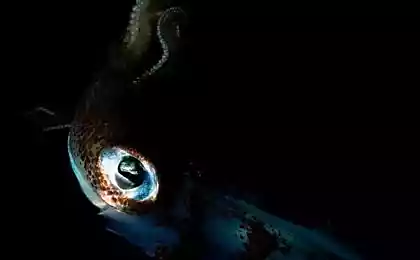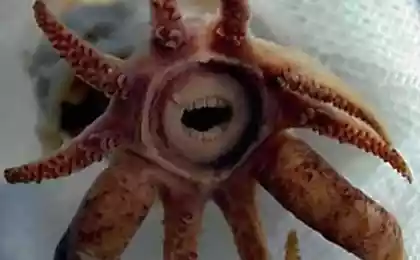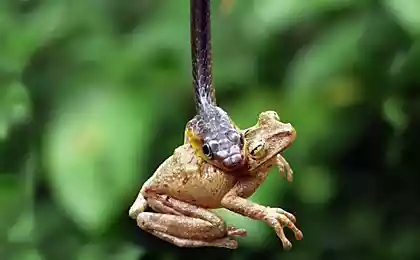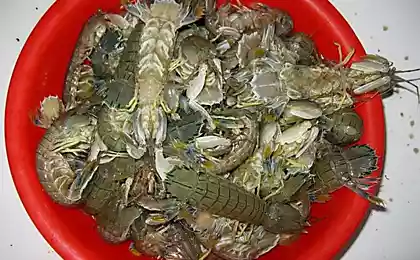1786
Giant Squid - a unique traveler
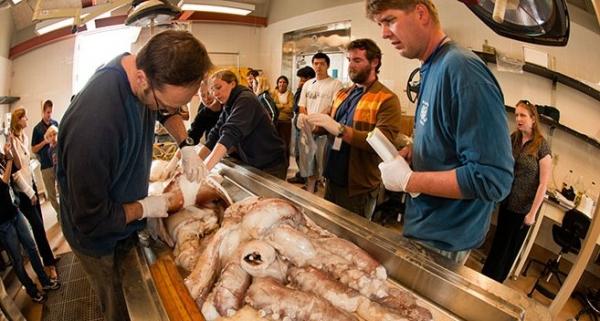
A new study has confirmed that the giant squid, which can grow up to 43 feet, have extraordinary DNA.
In a long-awaited report, published in the "Proceedings of the Royal Society B», claimed that among the giant squid from all over the world, there is "exceptionally low" genetic diversity.
In the picture above you can see how marine biologists reveal a giant squid, Long Marine Lab, Monterey Bay, California.
"These observations are consistent with the hypothesis that there is only one global view of the giant squid, Architeuthis dux», - says Inger Winkelmann and his colleagues, who suggested that the squid may have one of the largest ranges of all known living species.
Deep mystery of deepwater squid

Little is known about the giant squid, which can live at a depth of about 3,300 feet. In general, information about them is limited to books about the fantastic adventures of, for example, "20,000 Leagues Under the Sea" and the images, where prostrate body of squid with their long tentacles barely fit into the picture frame. Giant squid rarely caught alive. Basically they are discovered stranded on the beaches or see the corpses of the dead squid on the water surface. Yet, unfortunately, it happens that they are victims of fishermen.

Winkelmann (Winkelmann), of the Natural History Museum of the University of Copenhagen in Denmark, and his colleagues studied the mitochondrial genome of tissue samples from 43 of the giant squid. "Mitochondrial" refers to a type of DNA, which is inherited only through the female line. This applies squid from all over the world, including from the waters of California, Florida, Spain, Japan and New Zealand.
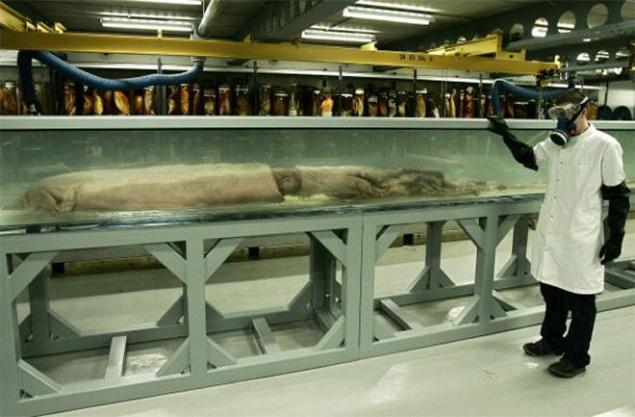
Incredibly, all were the same basic mitochondrial genomes. If, in fact, there is only one species of giant squid, the researchers suspected, it should be capable of adults traveling great distances. Younger squid can move via drift.
The giant squid in the depths of the Pacific Ocean
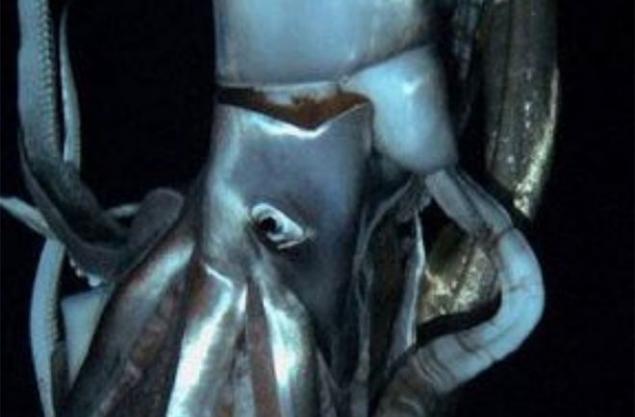
Scientists suggest that the population of giant squid are more numerous than previously thought. But the lack of genetic diversity makes this kind even more vulnerable to human disturbances. Previously, fishermen rarely met deepwater squid, but now, with the modern equipment for the trawl fishery huge squid are more likely to fall into the catch.
Pollution of the seas and oceans, climate change and loss of power sources can harm squid. It is believed that they feed mainly on deep-sea fish and other, smaller species of squid.
